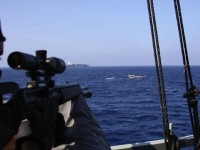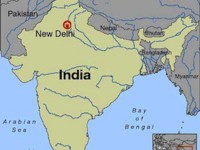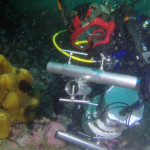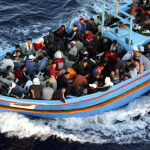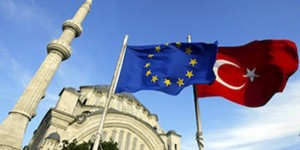
(di Anthony Brown) – The European Commission made public its annual progress report on Turkey last Wednesday unveiling unfortunately a rather bitter criticism on the pending relationship with its neighbouring Countries.
The Council acknowledged the influential regional role of Turkey in supporting reform, although its 25-year bid to join remains paralysed largely by its quarrel with EU member Cyprus. As a matter of fact, Turkey decided to freeze its relations with the Presidency of the Council of the EU during the second half of 2012 and not to attend meetings chaired by the Cyprus EU Presidency.
But it must be clear that the stalemate in the process of integration is also a missed opportunity for Europe and its institutions in terms of political influence in the near East as well as in North African countries.
It is a fact that the strategic landscape in the Mediterrenean region is changing at a pace that we had never observed before thus imposing a different tempo to the integration process.
We should not underestimate that Turkey is a leading regional player both in a geoeconomical and a geopoltical dimension and its combination of new-found prosperity and democracy under a party with Islamist roots could be a good example of a viable path towards democracy for other islamist countries.
After all, we must take into consideration that sound coordination structures, administrative capacity and implementing rules were put in place to meet European Union requirments and positive steps have been taken in terms of work on a new constitution and a democratic and participatory process has been put in place, albeit with some limitations on transparency. The new constitution should cement the stability of institutions guaranteeing democracy, the rule of law, human rights and respect for and protection of minorities and address longstanding problems, in particular the Kurdish issue. The parliament’s involvement in addressing key policy challenges has generally improved.
Further, the government committed itself to further democratisation and political reforms through work on a new constitution and progress has been made in legislative reforms with regard to public administration and there was further consolidation of civilian oversight of the security forces.
Furthermore, the third judicial reform package, adopted in July, constitues a step in the right direction; additionally some progress was made on the observance of international human rights law, notably through the efforts of the Ministry of Justice and the parliamentary Human Rights Inquiry Committee. Dialogue between the government and minorities continued. Representatives of minorities presented their views on a new constitution to the Parliamentary Conciliation Committe.
In a more economical perspective, the EU-Turkey Customs Union has enabled Turkey to reach a high level of alignment with the acquis in this area. The EU and Turkey need to work hand in hand to successfully tackle all challenges posed by a new order.
The business services sector is the fastest growing sector of the economy, and has overtaken all other sectors in importance for the time being. Even though these dynamics could lead to unexpected new strategic scenarios.
Turkey’s increasing disenchantment with the EU, explains the strength of Turkey’s interest in developing a strong relationship with countries seeking some economic gains and in the long term strategic goals in security and energy in the Mediterranean region such as Russia, China, and India.
Turkey has pursued a foreign policy mix of pragmatism and flexibility and is improving its positioning in the emerging strategic landscape in the Mediterranean.
It has improved ties with China as part of its broader strategy, which aims to decrease its political and economic dependence on the United States and Europe. The Islamist-rooted ruling Justice and Development Party (AKP) of Turkey has long used religious and ethnic ties in its immediate neighborhood to increase Ankara’s influence as a rapidly emerging regional power, along with the favorable conditions that a dynamic Turkish economy provides and Turkey’s assertiveness in Central Asia may re-emerge in the long term.
Dealing with Russia we should say that all pipelines seem to lead to Turkey showing the importance of the country in the energy market besides in 2008 Russia supplanted Germany as Turkey’s most important economic partner.
Finally, the Country has also established a long-term security cooperation with India.
In all, Turkey is in many respects the fulcrum around which other actors’ strategies are likely to pivot. A Turkey that breaks dramatically from its past alliances and partnerships would likely be the catalyst for a fundamental strategic reordering in the Mediterranean regions dramatically damaging the European Union that should, on the contrary, have a more positive and aggressive insight in the Mediterranean and further strentgh the bridge between East and West.
EU to provide over euro 37 million to fight piracy in Eastern and Southern Africa
maggio 24, 2013





 22 Ott 2012
22 Ott 2012
 Inviato da Clara Salpietro
Inviato da Clara Salpietro 



